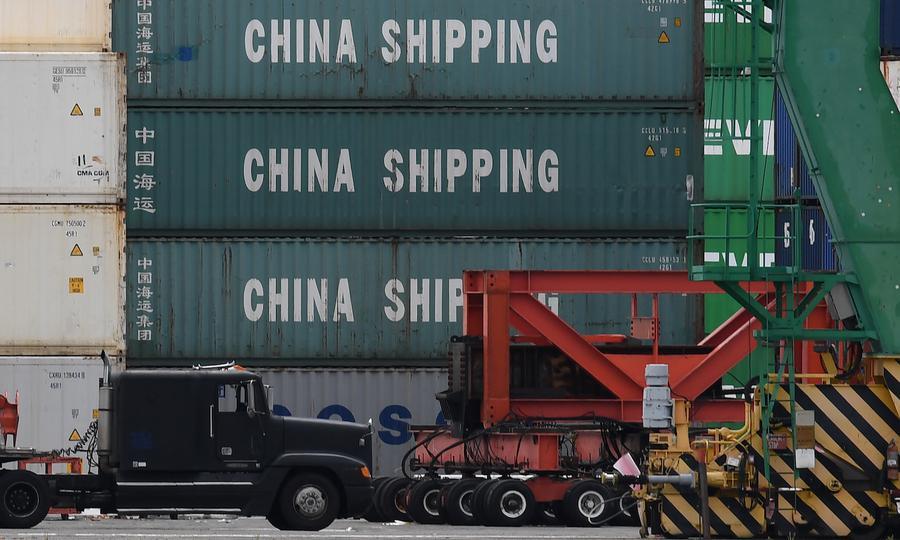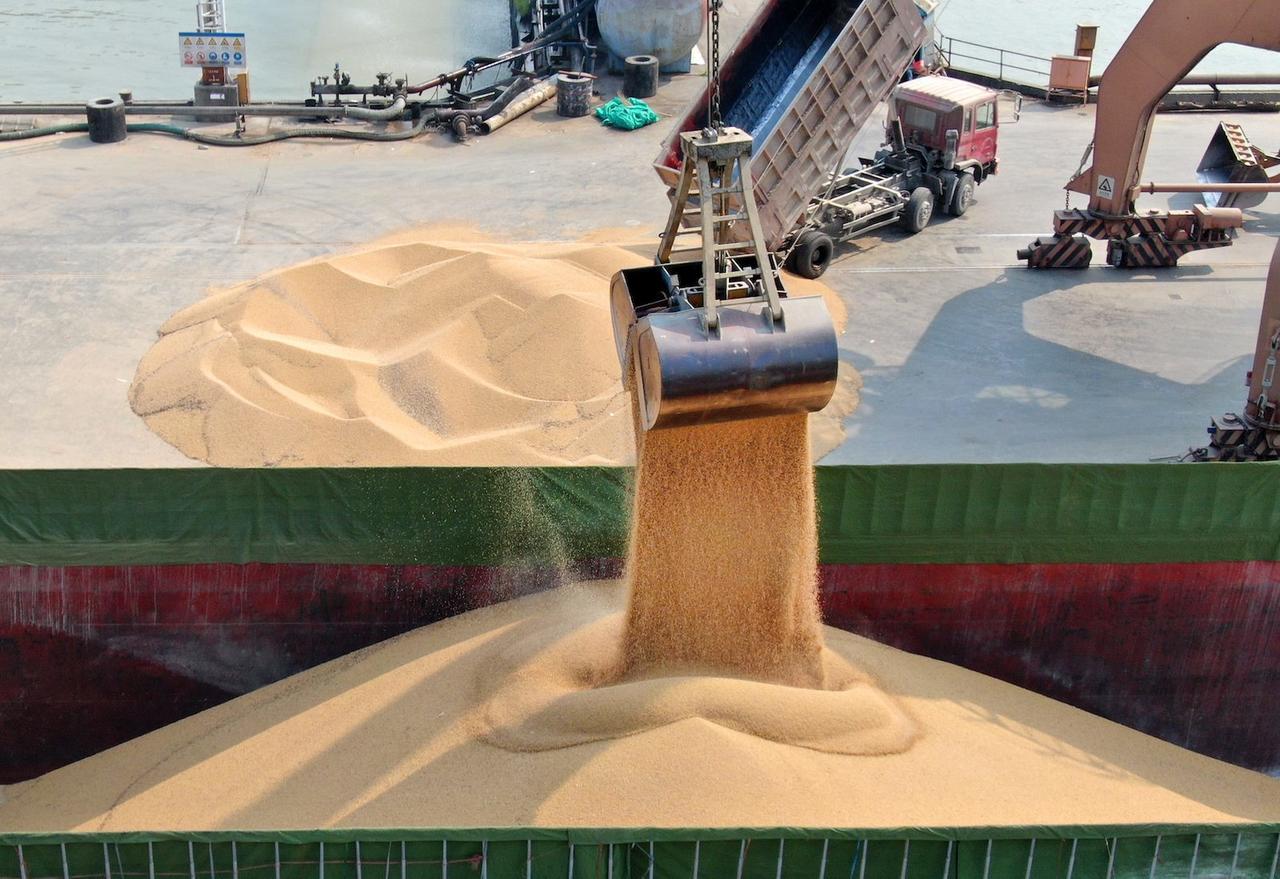I think you are mistaken
trump is counted on to be successful as he defined success
in the meantime Pepe seems to get a sense of what might be going on, almost as if he participates on this cafe thread
zerohedge.com
Pepe Escobar Warns Over US-China Tensions: "The Hardcore Is Yet To Come" Authored by Pepe Escobar via The Asia Times,
The Trump administration’s response to China’s emergence has been to throw all sorts of spanners in the works, but tariffs won’t bring back manufacturing jobs...

Let’s start with the “long” 16th Century – which, as with the 21st, also saw a turbulent process of marketization. At that time, the Jesuits and the Counter-Reformation were trying to rebound across Asia – but within a context where the rivalry between the Iberian superpowers of the age, Spain and Portugal, still lingered.
The Reformation first attached itself to the Dutch trade thalassocracy – a seaborne empire, under which commerce was paramount – over strict propaganda of religious dogma. Britain’s maritime realm was still biding its time. The emergence of Protestantism proceeded in parallel to the emergence of neo-Confucianism in East Asia.
Fast forward to our turbulent times. Marketization – renamed as globalization – seems to be in crisis. But not in the Middle Kingdom, which is now investing in globalization 2.0 amid increasing rivalry with the other superpower, the US.
The American thalassocracy is being superseded by the Revenge of the Heartland, in the form of the Russia-China strategic partnership – for whom Eurasian trade integration, as expressed by the New Silk Roads, or Belt and Road Initiative (BRI), is paramount over the Make America Great Again (MAGA) dogma.
Meanwhile, the re-emergence of Right populism in the West mirrors the re-emergence of pragmatic neo-Confucianism across Asia.
BRI – the prime vehicle for Eurasia integration – would have never come to light without China’s four decades of breakneck economic development.
My sharpest and most informed geopolitical readers, such as the wonderfully enigmatic Larchmonter, are in synch with my running conversations – for years now – with top analysts in Russia, China, Iran, Turkey and Pakistan; following the Obama administration’s fuzzy “pivot to Asia”, the Trump administration’s response to China’s emergence has been to throw all sorts of spanners in the works.
Thus, the current hysteria over tariffs, the trade offensive, the demonization of BRI, Made in China 2025 and Huawei’s 5G dominance, and all manner of disruptive Hybrid War tactics such as repeatedly claiming “freedom of navigation” in the South China Sea to progressive weaponizing of Taiwan.
All that duly fueled by non-stop hatchet jobs on media outlets, as in branding Huawei as “suspect” or “permanently untrustworthy”.
From the point of view of the hyperpower, there can be only one possible endgame: an amputated, permanently crippled and preferably non-stop aching Chinese economy – with unfavorable demographics to boot.

Soybeans from Ukraine are unloaded at the port in Nantong, in eastern China. Imports of soy used to come from the US, but have slumped since the trade war began. Photo: AFP
Where are our jobs?Pause on the sound and fury for necessary precision. Even if the Trump administration slaps 25% tariffs on all Chinese exports to the US, the IMF has projected that would trim just a meager slither – 0.55% – off China’s GDP. And America is unlikely to profit, because the extra tariffs won’t bring back manufacturing jobs to the US – something that Steve Jobs told Barack Obama eons ago.
What happens is that global supply chains will be redirected to economies that offer comparative advantages in relation to China, such as Vietnam, Indonesia, Bangladesh, Cambodia and Laos. And this redirection is already happening anyway – including by Chinese companies.
BRI represents a massive geopolitical and financial investment by China, as well as its partners; over 130 states and territories have signed on. Beijing is using its immense pool of capital to make its own transition towards a consumer-based economy while advancing the necessary pan-Eurasian infrastructure development – with all those ports, high-speed rail, fiber optics, electrical grids expanding to most Global South latitudes.
The end result, up to 2049 – BRI’s time span – will be the advent of an integrated market of no less than 4.5 billion people, by that time with access to a Chinese supply chain of high-tech exports as well as more prosaic consumer goods.
Anyone who has followed the nuts and bolts of the Chinese miracle launched by Little Helmsman Deng Xiaoping in 1978 knows that Beijing is essentially exporting the mechanism that led China’s own 800 million citizens to, in a flash, become members of a global middle class.
As much as the Trump administration may bet on “maximum pressure” to restrict or even block Chinese access to whole sectors of the US market, what really matters is BRI’s advance will be able to generate multiple, extra US markets over the next two decades.
We don’t do ‘win-win’There are no illusions in the Zhongnanhai, as there are no illusions in Tehran or in the Kremlin. These three top actors of Eurasian integration have exhaustively studied how Washington, in the 1990s, devastated Russia’s post-USSR economy (until Putin engineered a recovery) and how Washington has been trying to utterly destroy Iran for four decades.
Beijing, as well as Moscow and Tehran, know everything there is to know about Hybrid War, which is an American intel concept. They know the ultimate strategic target of Hybrid War, whatever the tactics, is social chaos and regime change.
The case of Brazil – a BRICS member like China and Russia – was even more sophisticated: a Hybrid War initially crafted by NSA spying evolved into lawfare and regime change via the ballot box. But it ended with mission accomplished – Brazil has been reduced to the lowly status of an American neo-colony.
Let’s remember an ancient mariner, the legendary Chinese Muslim Admiral Zheng He, who for three decades, from 1405 to 1433, led seven expeditions across the seas all the way to Arabia and Eastern Africa, reaching Champa, Borneo, Java, Malacca, Sumatra, Ceylon, Calicut, Hormuz, Aden, Jeddah, Mogadiscio, Mombasa, bringing tons of goods to trade (silk, porcelain, silver, cotton, iron tools, leather utensils).
That was the original Maritime Silk Road, progressing in parallel to Emperor Yong Le establishing a Pax Sinica in Asia – with no need for colonies and religious proselytism. But then the Ming dynasty retreated – and China was back to its agricultural vocation of looking at itself.
They won’t make the same mistake again. Even knowing that the current hegemon does not do “win-win”. Get ready for the real hardcore yet to come.
|




